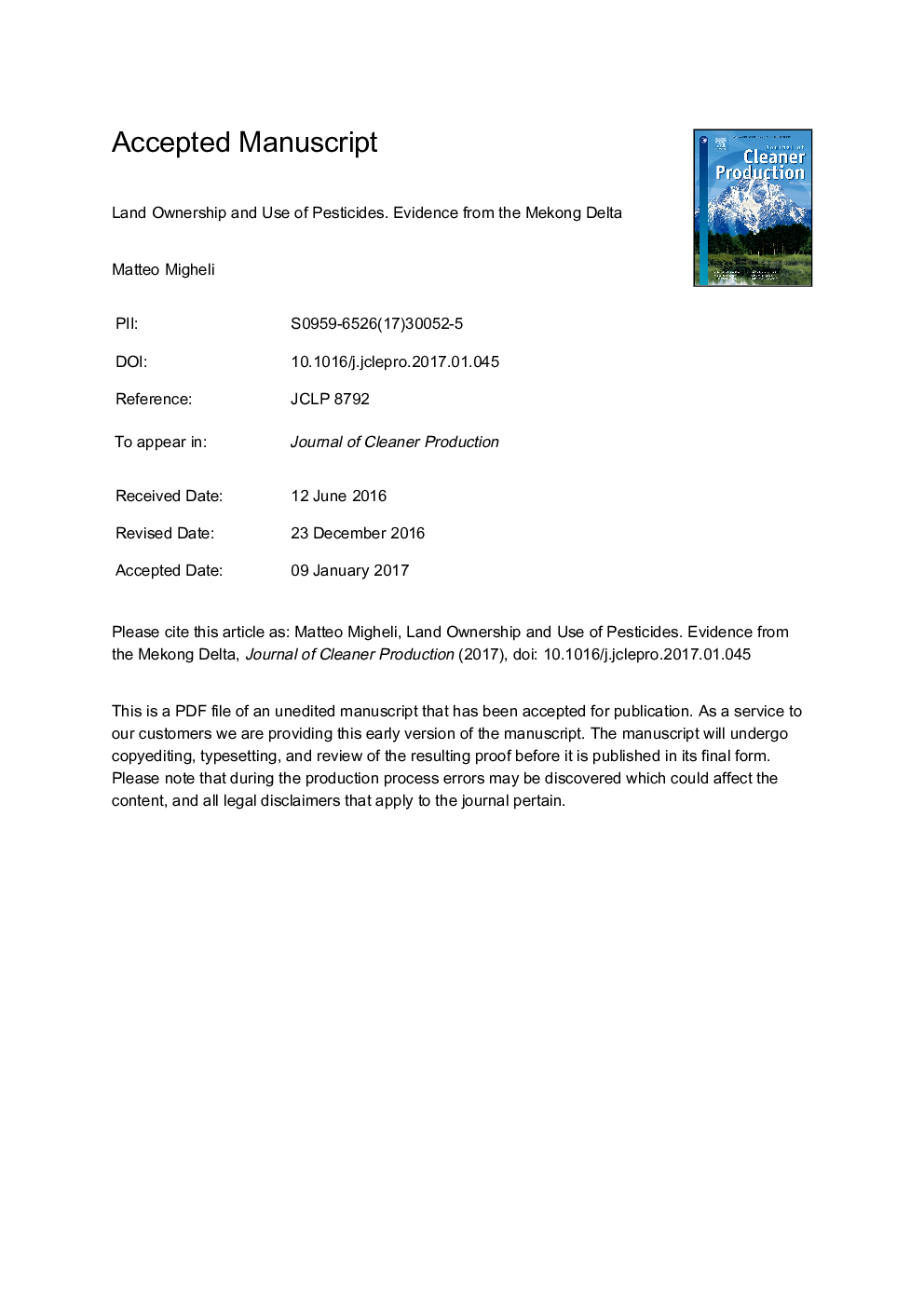| Article ID | Journal | Published Year | Pages | File Type |
|---|---|---|---|---|
| 5481614 | Journal of Cleaner Production | 2017 | 26 Pages |
Abstract
Massive use of pesticides is one of the major environmental problems in developing countries. I analyse the correlation between land ownership and use of pesticides in the Mekong Delta. Landowners may either use more or less pesticides than renters do. Indeed, pesticides increase land productivity in the short run, while decrease it in the long run. Therefore landowners trade-off immediate and future profits, which include also the value of the land that depends on its productivity. Differently from the extant literature this paper does not consider simply land ownership, but the share of the total land cultivated by the household that the household itself owns. Using data from the World Bank covering 603 farmer households in the Mekong Delta, this paper shows that as the share of cultivated land owned increases, so does the quantity of pesticides used. Policy recommendations may be derived: the governments of developing countries should strengthen their efforts to sensitise and to educate the owners of small farms to use agrochemicals correctly.
Keywords
Related Topics
Physical Sciences and Engineering
Energy
Renewable Energy, Sustainability and the Environment
Authors
Matteo Migheli,
